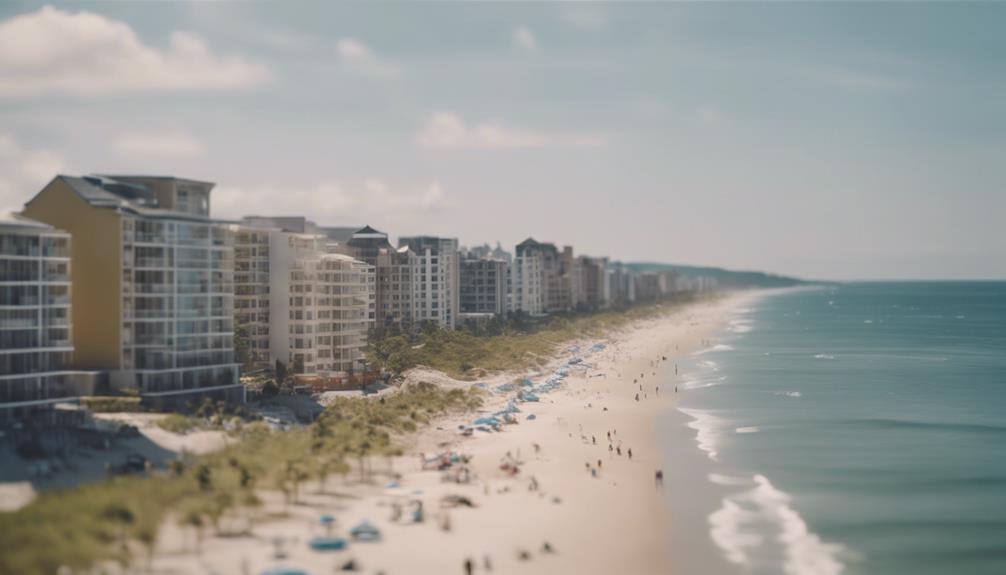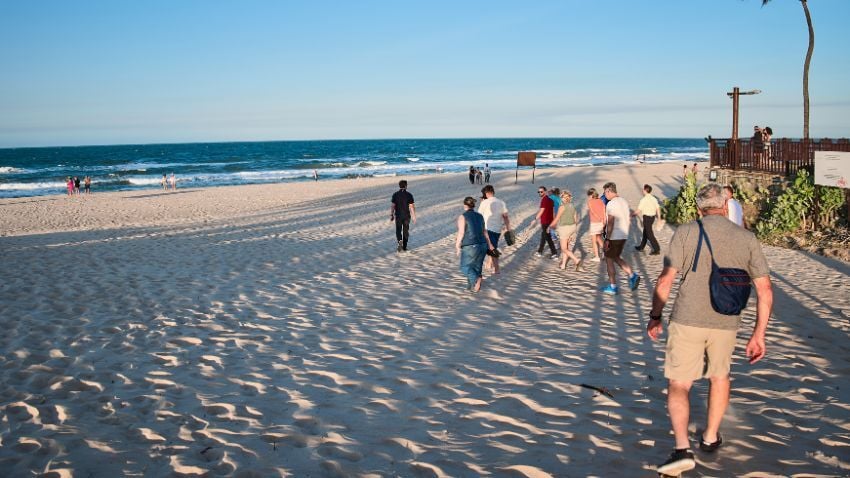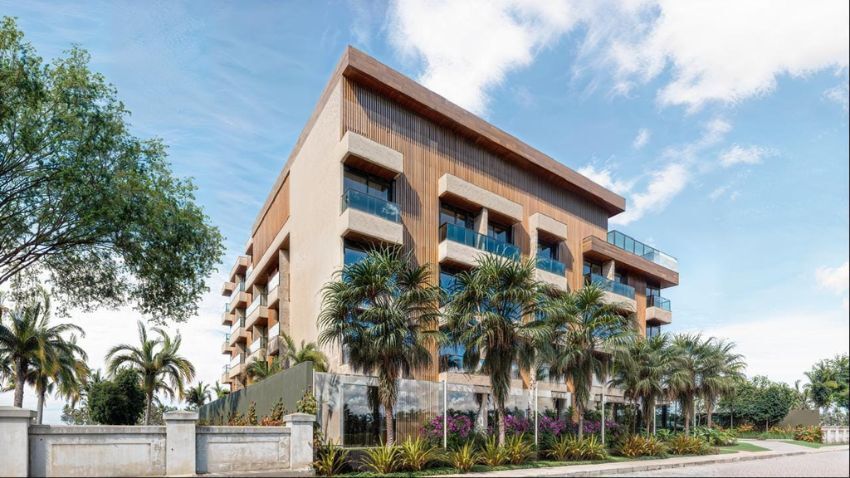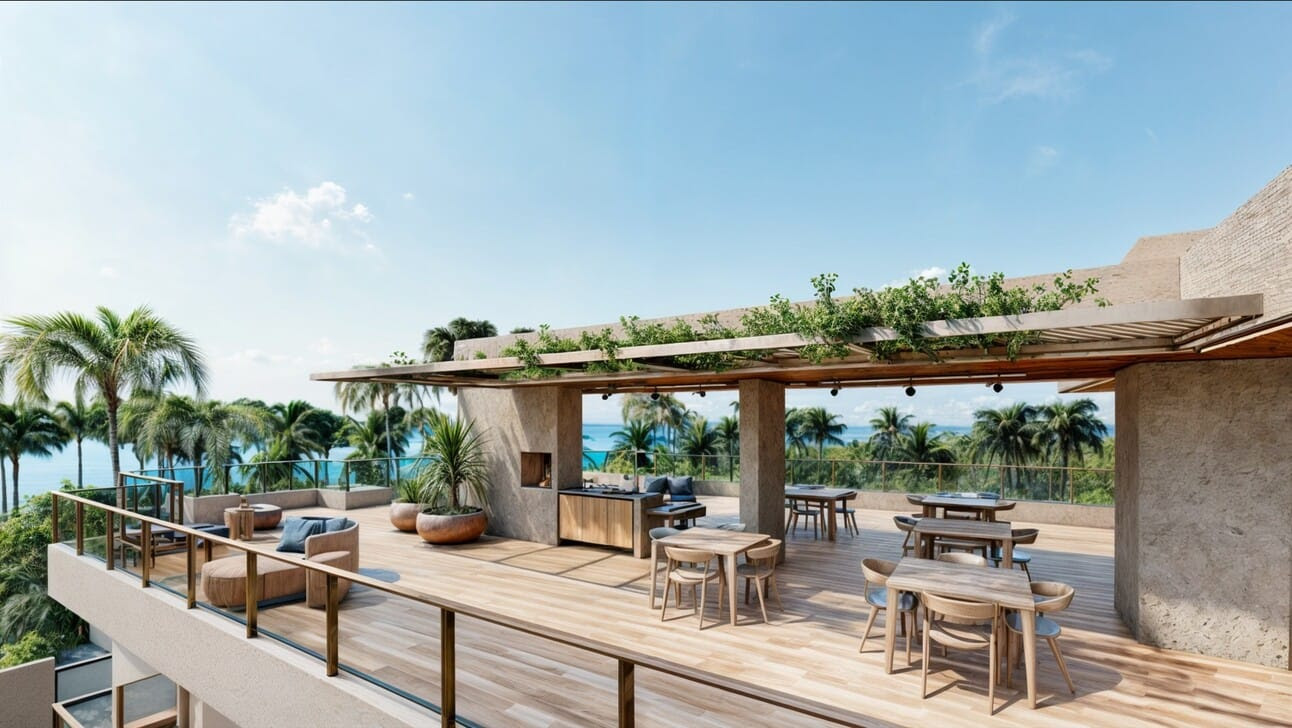Why I Own Real Estate in Multiple Countries...
Over the years, I’ve built a portfolio of real estate across numerous countries - not just as investments but as strategic tools to ensure freedom,...
5 min read
 Team Brazil Beachfront
:
August 8, 2024
Team Brazil Beachfront
:
August 8, 2024

Have you ever wondered how your favorite coastal getaway spots might be affecting the local real estate market? When tourism flourishes, property values in these picturesque regions often soar, creating a vibrant market for investors but also posing potential challenges for long-term residents. You'd think the economic boost would be beneficial for everyone, yet the reality isn't always so straightforward. As property prices increase, consider how this impacts local communities and the sustainability of their growth. Are the short-term gains worth the long-term consequences? Let's explore the intricate balance between tourism and real estate dynamics in these sought-after areas.

Tourism notably boosts property demand, especially in coastal areas near popular attractions. As you look into investing in these regions, you'll notice that properties close to tourist hotspots aren't just priced higher; they're also more likely to appreciate over time. The allure of scenic views and easy access to beaches and entertainment options enhances property values notably.
The ripple effect of tourism on housing prices doesn't stop there. The rental market in these coastal areas thrives as well. Platforms like Airbnb have transformed residential properties into lucrative investments, with short-term rentals allowing you to capitalize on the seasonal influx of tourists. However, remember that this can lead to variable income streams—high during peak season and potentially low during quieter months.
Moreover, the economic value added by tourists often leads to upgraded local infrastructure, making these neighborhoods even more attractive. This not only supports your property's value but also enhances the overall living experience in the area. You're not just investing in a property; you're investing in a continually evolving economic landscape, enriched and sustained by its popularity as a tourist destination.
Coastal tourism greatly bolsters local economies by generating substantial revenue, particularly contributing to government income and foreign exchange earnings. For instance, in areas like the Balearic Islands, tourism accounts for about 45% of regional GDP. This influx of money doesn't just linger in the abstract—it trickles down to local communities, enhancing lives and infrastructure.
You'll find that employment opportunities abound in the tourism sector, including hospitality, transport, and services. In fact, 32% of local employment in tourist-heavy coastal areas is directly linked to tourism. This isn't just about jobs; it's about sustainable tourism practices that support long-term economic health.
Moreover, the allure of coastal amenities, such as pristine beaches, boosts housing markets considerably. Properties with sea views often command a 10% higher price, while beachfront locations can fetch a 17% premium. This isn't merely about the view—it's about the value added to your investment due to the strategic importance of tourism development.
Seasonal tourism also plays a pivotal role in property values. Neighborhoods near major attractions see accelerated property value increases, driven by lucrative short-term rental markets. While this economic dependency on tourism can pose risks during downturns, the overall impact on your property's value and the local economy can be profound.

While the economic benefits of coastal tourism are evident, it's equally important to contemplate its adverse effects on the environment. Coastal tourism's growth often leads to habitat degradation and biodiversity loss. You've likely noticed more pollution and waste, which strain local natural resources. This isn't just unpleasant; it has profound environmental consequences.
Urbanization to accommodate tourists causes habitat loss and disrupts ecosystems, making the area more vulnerable to natural hazards like sea level rise. This isn't just a problem for wildlife; it affects you too. Increased vulnerability means potential damage to property and a need for more robust, often more expensive, infrastructure.
Moreover, the activities tourists engage in, like fishing and exploring, can introduce alien species that threaten local marine life and ecosystems. You might find that local fisheries, which many communities rely on, are becoming less productive due to these disturbances.
The construction of hotels and resorts, essential for housing tourists, often results in significant landscape alterations. This not only leads to coastal erosion but also impacts housing affordability.
As you struggle with these changes, consider how tourism management strategies could mitigate these negative effects, ensuring coastal tourism remains sustainable for your community and natural environment.
You may notice that as coastal areas become popular with tourists, local cultures often commercialize to meet new demands. This commercialization can erode cultural heritage, as traditional customs morph into tourist-friendly versions that may lack authenticity. The impact of tourism isn't just about the vibrant influx; it also involves the effects on housing, pushing real estate prices up and making it tough for locals to afford their own homes.
Community participation in shaping how tourism develops can lead to more sustainable practices, ensuring that the real essence of the community isn't lost in the shuffle. When locals are involved, tourist arrivals can contribute positively, fostering a genuine appreciation and revitalization of native cultures rather than diluting them.
Below is a quick overview of how tourism affects social and cultural aspects in coastal regions:
| Aspect | Impact | Possible Outcome |
| Cultural Heritage | Commercialization of local customs | Diminished cultural diversity |
| Effects on Housing | Increase in real estate prices | Economic inequality |
| Sustainable Practices | Integration of native traditions | Cultural revitalization |
| Tourist Arrivals | Demand for standardized cultural experience | Homogenization of culture |
| Community Participation | Strengthening local identities | Enhanced community vitality |

Understanding how tourism reshapes social and cultural landscapes, it's equally important to explore strategies for sustainable tourism that strengthen both the environment and local communities. You can actively participate in this movement through various approaches tailored to protect and enhance the coastal regions you love so much.
First off, implementing eco-friendly practices in tourism is essential. Consider supporting or investing in accommodations that prioritize energy efficiency and waste reduction. These initiatives not only safeguard the environment but also boost the appeal and competitiveness of properties in these areas, potentially raising their value.
Moreover, your involvement in community engagement can make a significant difference. When locals are involved in tourism planning, it guarantees that development respects and preserves the cultural heritage, contributing positively to the area's social fabric and tourism economics.
Don't underestimate the power of collaborative efforts either. Partnerships between the public and private sectors can drive forward-thinking solutions like renewable energy projects and green infrastructure, benefiting both the environment and local economies.
Lastly, as a tourist, you can contribute by educating yourself and others about responsible behaviors that minimize environmental impacts. This awareness helps preserve the unique coastal ecosystems that attract visitors, sustaining the region's attractiveness and property values in the long run.
Tourism in coastal areas leads to a seasonal influx, boosting rental demand and benefiting local businesses.
However, it also strains infrastructure and can cause environmental degradation.
Over time, this might lead to cultural erosion and community displacement as the original character and population of the area change.
You'll see both positive and negative impacts, balancing economic gains with potential challenges to the local community and environment.
Yes, tourism generally boosts property values in coastal regions.
You'll notice increased property demand, enhanced rental income, and greater investment potential.
However, be aware of market fluctuations due to seasonal occupancy and the gentrification effects that can alter the local economy.
The influx of visitors drives up prices and makes these areas more attractive, benefiting property owners but also potentially impacting the affordability for local residents.
Tourism affects Hawaii's housing by increasing tourist demand, which drives up rental prices and reduces housing availability for locals.
This economic boost benefits the local economy but also leads to community development challenges, such as infrastructure strain and issues with cultural preservation.
As more properties are turned into vacation rentals, it becomes harder for residents to find affordable homes, impacting the overall quality of life and sustainability of local communities.
Tourism greatly impacts ocean ecosystems by contributing to ocean pollution and habitat degradation. Increased foot traffic and resort development disrupt the balance, harming marine life and undermining coastal resilience.
To mitigate this, you can support sustainable tourism practices that prioritize wildlife conservation and ecosystem balance. By choosing eco-friendly options, you play an essential role in preserving these precious environments for future generations while still enjoying the beauty of coastal regions.
As you consider investing in coastal properties, remember tourism drives property values up, especially those with scenic views or beach access.
While this can boost your rental income, it's essential to recognize the potential social and environmental strains it may cause.
To guarantee a balanced approach, adopting sustainable tourism practices is key.
This not only supports local communities but also maintains the long-term attractiveness and value of your investment in these beautiful yet vulnerable regions.


Brazil Beachfront is your trusted source for uncovering the incredible opportunities along Brazil’s breathtaking Northeastern coastline. With Brazil’s economy on the rise and its middle class growing rapidly, the market offers an undeniable upside for offshore investors.
The newsletter also showcases past projects, providing readers who have purchased real estate with detailed construction updates to keep them informed every step of the way. From the lifestyle appeal of Brazil’s pristine beaches to the financial advantages of investing in this high-growth market, Brazil Beachfront delivers the insights and updates needed to capitalize on one of the world’s most dynamic real estate opportunities.

Over the years, I’ve built a portfolio of real estate across numerous countries - not just as investments but as strategic tools to ensure freedom,...

Every week, I bring you deals, insights, opportunities and off-market projects that nobody else has access to……and many of you assume it’s because I...

If you were to visit Porto das Dunas today, you would feel something that is hard to capture in photos……it feels organized.Traffic flows smoothly....